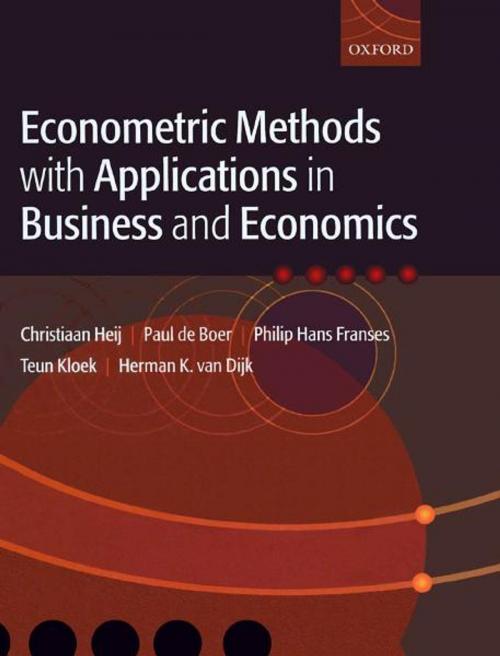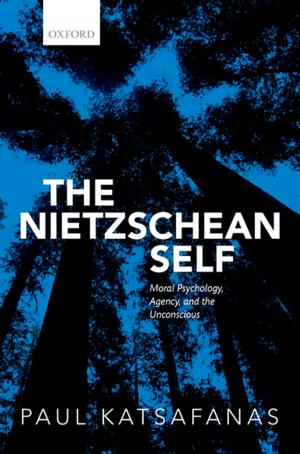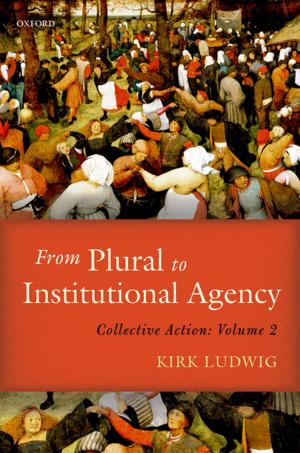Econometric Methods with Applications in Business and Economics
Business & Finance, Economics, Econometrics| Author: | Christiaan Heij, Paul de Boer, Philip Hans Franses, Teun Kloek, Herman K. van Dijk, All at the Erasmus University in Rotterdam | ISBN: | 9780191608407 |
| Publisher: | OUP Oxford | Publication: | March 25, 2004 |
| Imprint: | OUP Oxford | Language: | English |
| Author: | Christiaan Heij, Paul de Boer, Philip Hans Franses, Teun Kloek, Herman K. van Dijk, All at the Erasmus University in Rotterdam |
| ISBN: | 9780191608407 |
| Publisher: | OUP Oxford |
| Publication: | March 25, 2004 |
| Imprint: | OUP Oxford |
| Language: | English |
Nowadays applied work in business and economics requires a solid understanding of econometric methods to support decision-making. Combining a solid exposition of econometric methods with an application-oriented approach, this rigorous textbook provides students with a working understanding and hands-on experience of current econometrics. Taking a 'learning by doing' approach, it covers basic econometric methods (statistics, simple and multiple regression, nonlinear regression, maximum likelihood, and generalized method of moments), and addresses the creative process of model building with due attention to diagnostic testing and model improvement. Its last part is devoted to two major application areas: the econometrics of choice data (logit and probit, multinomial and ordered choice, truncated and censored data, and duration data) and the econometrics of time series data (univariate time series, trends, volatility, vector autoregressions, and a brief discussion of SUR models, panel data, and simultaneous equations). · Real-world text examples and practical exercise questions stimulate active learning and show how econometrics can solve practical questions in modern business and economic management. · Focuses on the core of econometrics, regression, and covers two major advanced topics, choice data with applications in marketing and micro-economics, and time series data with applications in finance and macro-economics. · Learning-support features include concise, manageable sections of text, frequent cross-references to related and background material, summaries, computational schemes, keyword lists, suggested further reading, exercise sets, and online data sets and solutions. · Derivations and theory exercises are clearly marked for students in advanced courses. This textbook is perfect for advanced undergraduate students, new graduate students, and applied researchers in econometrics, business, and economics, and for researchers in other fields that draw on modern applied econometrics.
Nowadays applied work in business and economics requires a solid understanding of econometric methods to support decision-making. Combining a solid exposition of econometric methods with an application-oriented approach, this rigorous textbook provides students with a working understanding and hands-on experience of current econometrics. Taking a 'learning by doing' approach, it covers basic econometric methods (statistics, simple and multiple regression, nonlinear regression, maximum likelihood, and generalized method of moments), and addresses the creative process of model building with due attention to diagnostic testing and model improvement. Its last part is devoted to two major application areas: the econometrics of choice data (logit and probit, multinomial and ordered choice, truncated and censored data, and duration data) and the econometrics of time series data (univariate time series, trends, volatility, vector autoregressions, and a brief discussion of SUR models, panel data, and simultaneous equations). · Real-world text examples and practical exercise questions stimulate active learning and show how econometrics can solve practical questions in modern business and economic management. · Focuses on the core of econometrics, regression, and covers two major advanced topics, choice data with applications in marketing and micro-economics, and time series data with applications in finance and macro-economics. · Learning-support features include concise, manageable sections of text, frequent cross-references to related and background material, summaries, computational schemes, keyword lists, suggested further reading, exercise sets, and online data sets and solutions. · Derivations and theory exercises are clearly marked for students in advanced courses. This textbook is perfect for advanced undergraduate students, new graduate students, and applied researchers in econometrics, business, and economics, and for researchers in other fields that draw on modern applied econometrics.















